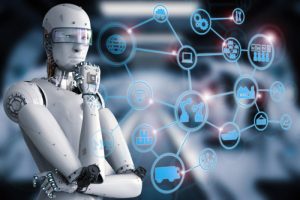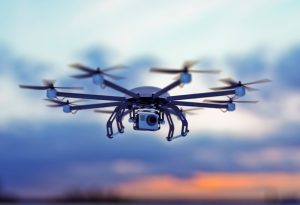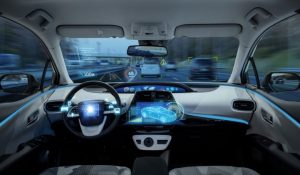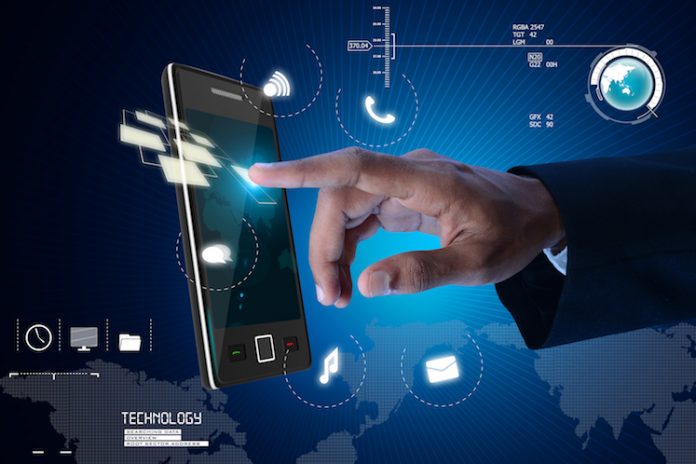Advances in technology mean different things to different people. Some die-hard techies are on the cutting edge and work in the industry. Then, there are the tech nerds who may not be professionals but watch out for the latest gadgets like cats watching fish swim in a tank. For most of us, however, technology is that thing in life that makes magic happen. We are mostly interested in how new technology will change our lives, for example, if our new smartphone will have a better camera or if the advance in tech will create cost savings or convenience in our lives. No matter where you fall on this spectrum, we can all agree on one thing: changes in technology are happening quickly. So, let’s get up to date with the 10 technology trends that are on the horizon this year.

1. Getting Ready For 5G
 The term 5G refers to the fact that there are five generations of cellular and network solutions, and, yep, the latest iteration is 5G. It is in the works right now and is expected to be rolled out sometime in 2019. Companies, such as Ericsson, AT&T, Ciena, and Verizon, are leading the way.
The term 5G refers to the fact that there are five generations of cellular and network solutions, and, yep, the latest iteration is 5G. It is in the works right now and is expected to be rolled out sometime in 2019. Companies, such as Ericsson, AT&T, Ciena, and Verizon, are leading the way.
So, what exactly will 5G do? Users can expect a mobile connectivity at higher speeds, of course. But, with that comes technology that has increased bandwidth, which opens the door to virtual reality. That is quite a step forward from the original 1G phones in the 1990s that only allowed you to make calls. Remember your flip phone? How far we have come!
Logically, the next development was 2G, which let users not only make phone calls but text, as well. Then, 3G came along and opened the door to Internet browsing, in addition to the texting and calling features. Right now, 4G is the norm. It basically is the same thing as 3G, but at hyper speed. Long-term evolution, also called LTE, made the technology consistent and fast.
Now, we are on the doorstep of 5G, and all the amazing features that will come with it. The smartphone of the future will not only unlock the door to virtual reality but smart cities. IoT (the Internet of Things) will connect people as never before. Smart cities will be able to wire buildings to manage the use of energy, for example, or aid in the navigation or sensor systems in autonomous vehicles. Sacramento, Calif., may be the first smart city. It has a goal of rolling out 5G by the end of 2018.
2. Artificial Intelligence
 AI refers to computers that are able to react and work in the same way that human beings do. So-called intelligent computers are being developed that can problem solve, reason, learn, access knowledge, and plan in much the same way we do. These computers will offer us machine learning, advanced speech recognition, and advanced problem-solving abilities applicable to numerous industries.
AI refers to computers that are able to react and work in the same way that human beings do. So-called intelligent computers are being developed that can problem solve, reason, learn, access knowledge, and plan in much the same way we do. These computers will offer us machine learning, advanced speech recognition, and advanced problem-solving abilities applicable to numerous industries.
A core part of research into artificial intelligence is the engineering of knowledge, which means the machines will have to be fed tons of information about the world to be able to perform. Huge amounts of data about the physical environment, objects, categories of things, and relational information must be programmed into AI computers. AI is no doubt an exciting development. But, at the same time, it may lead to more invasive computer hacking or other security threats. Some conspiracy theorists even fear that AI could lead to the extinction of the human race or some other catastrophe.
3. Drone Technology
 Drone technology has come a long way since it was initially introduced decades ago in military applications. These unmanned aerial vehicles, or UAVs, were first used on military missions that were too risky for humans or in reconnaissance missions where being stealthy was required.
Drone technology has come a long way since it was initially introduced decades ago in military applications. These unmanned aerial vehicles, or UAVs, were first used on military missions that were too risky for humans or in reconnaissance missions where being stealthy was required.
Today, drones are being used by many disparate industries, such as delivery, search-and-rescue operations, construction, and agriculture. Drones can literally go where no man has gone before, i.e. into a burning building to search for survivors or deep into a coal mine to search for a mineral vein. Google, Amazon, and Walmart are all experimenting with using drones for deliveries. Just this year, startup medical delivery company Zipline introduced a new model of drone that can travel as fast as 80 miles an hour and handle up to 500 deliveries in one day.
The Federal Aviation Administration (FAA) is considering how drones will share airspace and navigate through populated areas and buildings. But, in the future, we might be looking up at a sky filled with drones!
4. Job Automation and Working from Home
 The idea of a 9-to-5 workday is becoming very different thanks to the automation of jobs. Algorithms have been written for computers that can perform both blue-collar and white-collar functions. Factory assembly lines have replaced industrial workers. Uber already has some self-driving cars that displace actual Uber drivers. Self-checkout lines have become ubiquitous in stores and are replacing human cashiers at the registers.
The idea of a 9-to-5 workday is becoming very different thanks to the automation of jobs. Algorithms have been written for computers that can perform both blue-collar and white-collar functions. Factory assembly lines have replaced industrial workers. Uber already has some self-driving cars that displace actual Uber drivers. Self-checkout lines have become ubiquitous in stores and are replacing human cashiers at the registers.
Telecommuting and working from home is becoming more and more the norm, thanks to connectivity through instant messaging, high-speed Internet and Cloud platforms that manage workflow. Love it or hate it, companies are saving money through job automation and letting workers telecommute. The trend is likely to grow even further in 2018 and beyond.
5. Autonomous Vehicles
 Few people realize that autonomous vehicles have been in existence for quite some time. A tractor with automatic steering was introduced by John Deere more than 15 years ago. So, the idea of autonomous driving is nothing new. Even your brakes, if they are antilock, are run on a computer.
Few people realize that autonomous vehicles have been in existence for quite some time. A tractor with automatic steering was introduced by John Deere more than 15 years ago. So, the idea of autonomous driving is nothing new. Even your brakes, if they are antilock, are run on a computer.
But, as devices, such as connectivity components and sensors, become more cutting-edge, so do cars and trucks. Mobileye and NVIDIA are examples of companies at the forefront of the mapping technology. Lidar is the laser and sensing technology that is used for these vehicles. It used to cost $75,000 to install LIDAR a few short years ago. But, in 2018, Google’s parent company, Alphabet Inc., introduced an autonomous car with LIDAR costing one-tenth of that amount. Self-driving vehicles, as well as electronic vehicles (EVs) and hybrids, are common and becoming more popular with consumers as prices get lower.
6. Voice Assistants
 Some people talk to Siri and Alexa like they are their best friends. Alexa, you may ask, what is the temperature outside? Or, is there a restaurant within walking distance that is still open? In 2018, people have come to depend on their virtual assistants for a variety of tasks. Only a few years ago, nobody had even heard of Siri or Alexa.
Some people talk to Siri and Alexa like they are their best friends. Alexa, you may ask, what is the temperature outside? Or, is there a restaurant within walking distance that is still open? In 2018, people have come to depend on their virtual assistants for a variety of tasks. Only a few years ago, nobody had even heard of Siri or Alexa.
Siri was the first voice assistant on the scene, introduced in Apple iPhones to do simple tasks, such as answering basic questions online. Alexa is the newcomer, inside the Echo smart home device from Amazon. It can do everything from wake you up in the morning, help you with online shopping or even take a picture of you in different clothes and offer an opinion about which outfit looks best on you. In 2018, we are all getting used to hearing the phrase, “Alexa, do … ” (fill in the blank). So, um, Alexa! Finish writing this article (kidding, kind of).
Disclaimer: All images are copyright to their respective owners and are used by USA Online Casino for informational purposes only.










